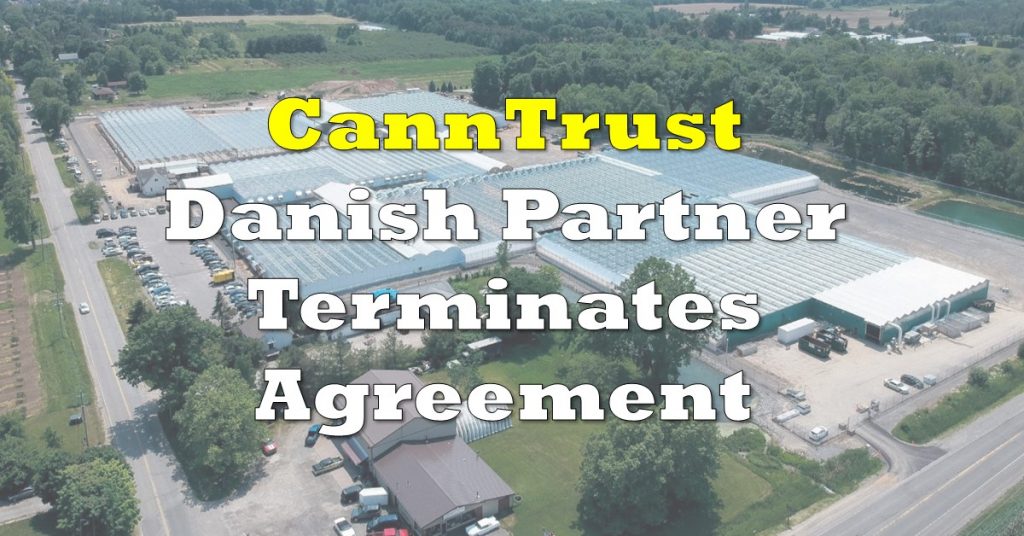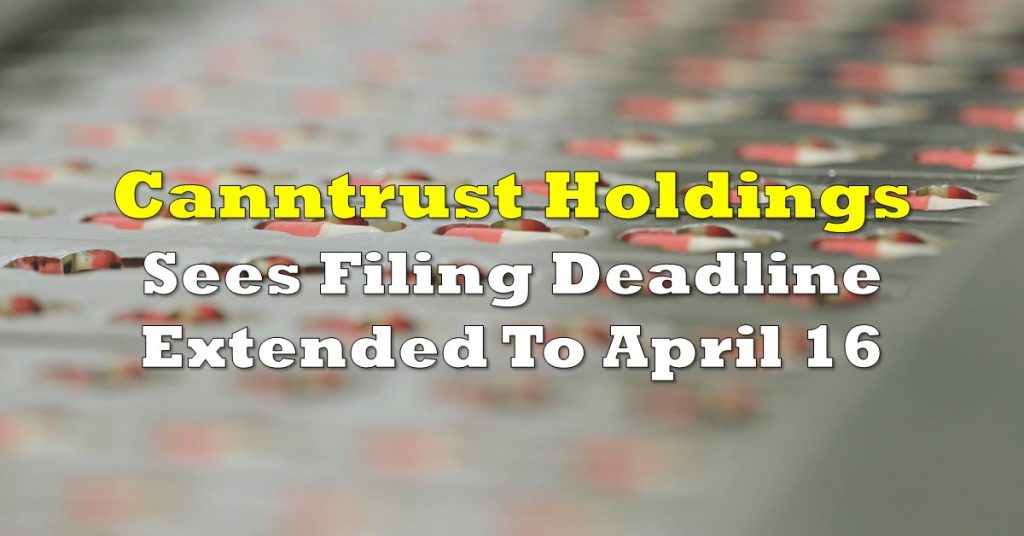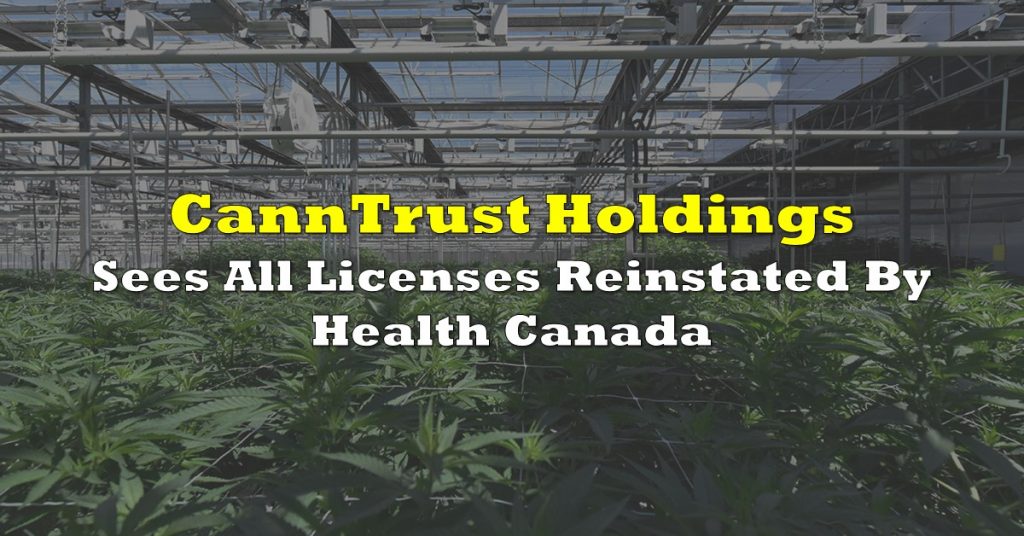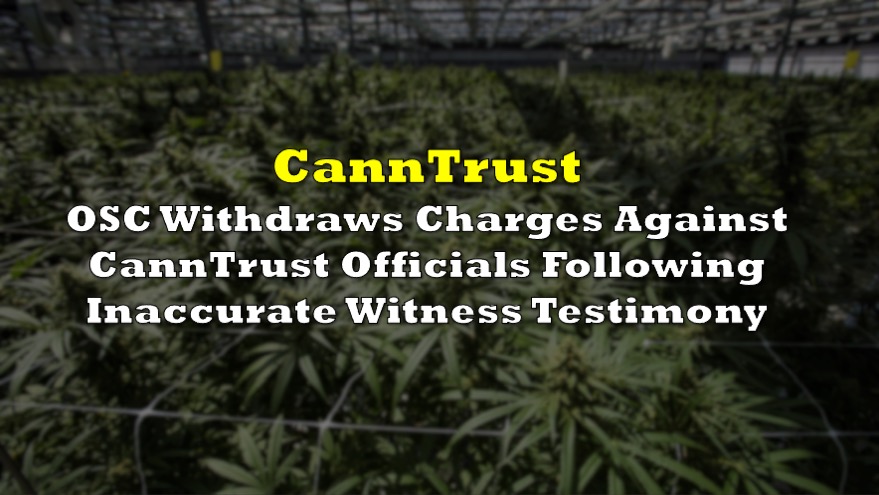Feature image of Peter Aeto, and his 2015 book “Weology” borrowed from Speakers Spotlight.
When Health Canada froze 5,000 kilos of product shipped and stored by Canadian licensed cannabis producer CannTrust Holdings in July of 2019, and began an investigation that would eventually result in the suspension of CannTrust’s license in September of the same year, it didn’t seem right in any general, layman’s sense.
The company had a license to grow cannabis at the facility, and that’s what it was doing. The notion that it had broken the rules by growing it in a room that Health Canada hadn’t yet blessed, and that the the product from that room, which had undergone the requisite testing and quality assurance before being packaged and shipped or stored, had to be destroyed, seemed foolish.
Today, to anyone unfamiliar with Canadian cannabis licensing, it still seems foolish. So foolish that when the OSC was forced to explain it to a judge last week to further its prosecution of CannTrust’s former CEO Peter Aceto, former Chairman Eric Paul, and former Director Lark Litwin, for securities fraud, the prosecutor in charge decided it would be less embarrassing to call the whole thing off, fold up their tents and go home.
Whether it’s apparent to the OSC or not, the rigidity of the licensing requirements, and the scarcity that it caused, is the very thing that gave these companies value. When CannTrust received its first facility license in 2014, it was one of 21 licenses that had been issued in the whole country. Its 2nd license, in 2017, was the 62nd issued country wide.

Gobs of money poured in to cannabis cap tables, following the premise that they would be some of few entities licensed to produce cannabis in the country. When Health Canada was conducting its June, 2019 snap inspection on the CannTrust facility, the company had two of only 176 total licenses. CannTrust had just finished raising US$200 million based on its ownership of those licenses, and its ability to abide by the rules that govern them, in a way that doesn’t result in it losing them.
The Edge of Bad Governance
Rules without consequences, and rules that are easy to duck, invite calculus about how they can be broken. If the speed limit is 65 mph, but going 70 mph probably won’t get a driver stopped and ticketed, people will go 70 mph to get where they’re going a bit faster. The risk is low, and worth the payoff. Most people won’t drive 100 mph, because that’s a bit much, and it isn’t worth risking a wreck to get through that speed zone 40% faster. The fine for reckless driving is also usually a lot steeper.
CannTrust was in a race with its peers to produce the most product of the best quality and get it to market. That’s easier to do with more space so, by the account of the people who snitched on CannTrust, including Graham Lee, its Director of Quality Assurance and Compliance, the company got started in those rooms a bit early, and took active measures not to get caught.
True competitors have to find an edge somehow. Sometimes, they make their businesses better or more efficient than their competition. They hire better staff, or are organized more efficiently, or apply a better understanding of the market. Other times, they cheat and hope they won’t get caught, or that they’ll still end up ahead after dealing with the trouble the cheating might get them in. Peter Aceto organizations tend to get their edge from the second thing.
He steps over the line habitually.

Aceto has a history with companies that have actively broken the rules for their benefit while implementing policies that conceal the company’s non-compliance. He was the Chief Risk Officer at ING US during a period when the bank was penalized for slipping billions of dollars belonging to ING’s Cuban and Iranian customers past regulations and into the United States, in direct violation of US sanctions. The prosecutors at the US Attorney’s Office, who take their jobs more seriously than the OSC, stayed on ING until it paid a $619 million fine under a deferred prosecution agreement, that might be considered the best they could hope for.
The fine was issued in 2008, for money smuggling that had occurred between 1996 and 2007. By then, Aceto was running the consumer bank now known as Tangerine back here in Canada, where the agencies that can get him in trouble haven’t got much practice in the courtroom. Was that in the back of his mind while he was running CannTrust? Or was he just counting on eventually running into a judge who could see the absurdity of it all?
Where was this fighting spirit in 2019?
Ultimately, the notion advanced by the defense in its cross-examination of Lee that the CannTrust facility was licensed to produce cannabis, technically, just not approved to produce it in those rooms, amounts to an argument that Health Canada should not have revoked the company’s license. That’s a sentiment widely shared by its shareholders, who don’t see why it’s such a big deal. The Aceto-era CannTrust’s relentless messaging has a lot to do with that, but it also just feels wrong. Here’s a facility that’s gone through its approval process, passed all its inspections, keeps a certified staff around to make sure everything is being done up to code, and ships product that consumers buy and like. Shutting it down for growing some plants on the wrong side of a wall just doesn’t seem fair.
CannTrust Chairman Eric Paul’s post-inspection reply to the emails from his Director of Compliance (published by the Globe and Mail in 2019), informing him that the company had just “dodged a bullet,” betray a corporate feeling that the licensing process just wasn’t happening at a pace they could live with:
“We need to clearly point out that we have been diligent in submitting the applications for each new area and they have been slow in responding. We are supporting the legislation and we need their cooperation. Politely as always.”
Eric Paul, now-former Chairman of CannTrust Holdings, November 2018
The reply drips with entitlement. CannTrust has been diligent! Health Canada has been slow! They, the company set up to benefit from the legislation, has supported the legislation, and now they need a little bit of cooperation! How could a company so persecuted not be entitled to just a little bit of non-compliance as a stop-gap? Just to tide their margin over until the ministry finally OKs those rooms?
Health Canada’s apparent response to CannTrust’s nagging (politely, as always), was a snap inspection in June of 2019 and, when the much maligned government agency in charge of cannabis eventually concluded its investigation, CannTrust lost its license to produce cannabis, its stock was worthless, and the executive team probably wished they had been shot.
The shareholders replied almost instantly by signing on to a class action lawsuit that the company settled in December of 2021, in a de-facto admission that it had defrauded its investors, but may have been saved the trouble if these executives had applied the same amount of zeal to defending their business as they did to themselves.
The notion that these rules weren’t fair or reasonable, and that the penalties they were facing for pushing the boundaries of space approval was a draconian over-reaction, wasn’t something that Aceto or his colleagues were willing to weaponize on the behalf of the shareholders. If it’s good enough to slip the hook on securities fraud, surely it’s worth a shot suing Health Canada over unreasonable disruption of its business, over-enforcement etc.
Instead, the line out of Aceto when Health Canada first froze CannTrust product for having been grown in unlicensed rooms was that, “Mistakes were absolutely made at CannTrust,” and that the company, “has a very clear process in place that is going to get us back into compliance as soon as possible.” CannTrust terminated him with cause about two weeks later, the same day Paul and Larik tendered their resignations.
Thursday, in a statement from his attorney, Aceto was pleased that his name had been cleared. That he could reclaim his self-applied status as a “banker of the people.”
No word on what’s next, for Aceto. Maybe he’ll write another book.

Information for this briefing was found via Sedar, Bloomberg, and the sources mentioned or linked. The author has no securities or affiliations related to this organization. Not a recommendation to buy or sell. Always do additional research and consult a professional before purchasing a security. The author holds no licenses.









